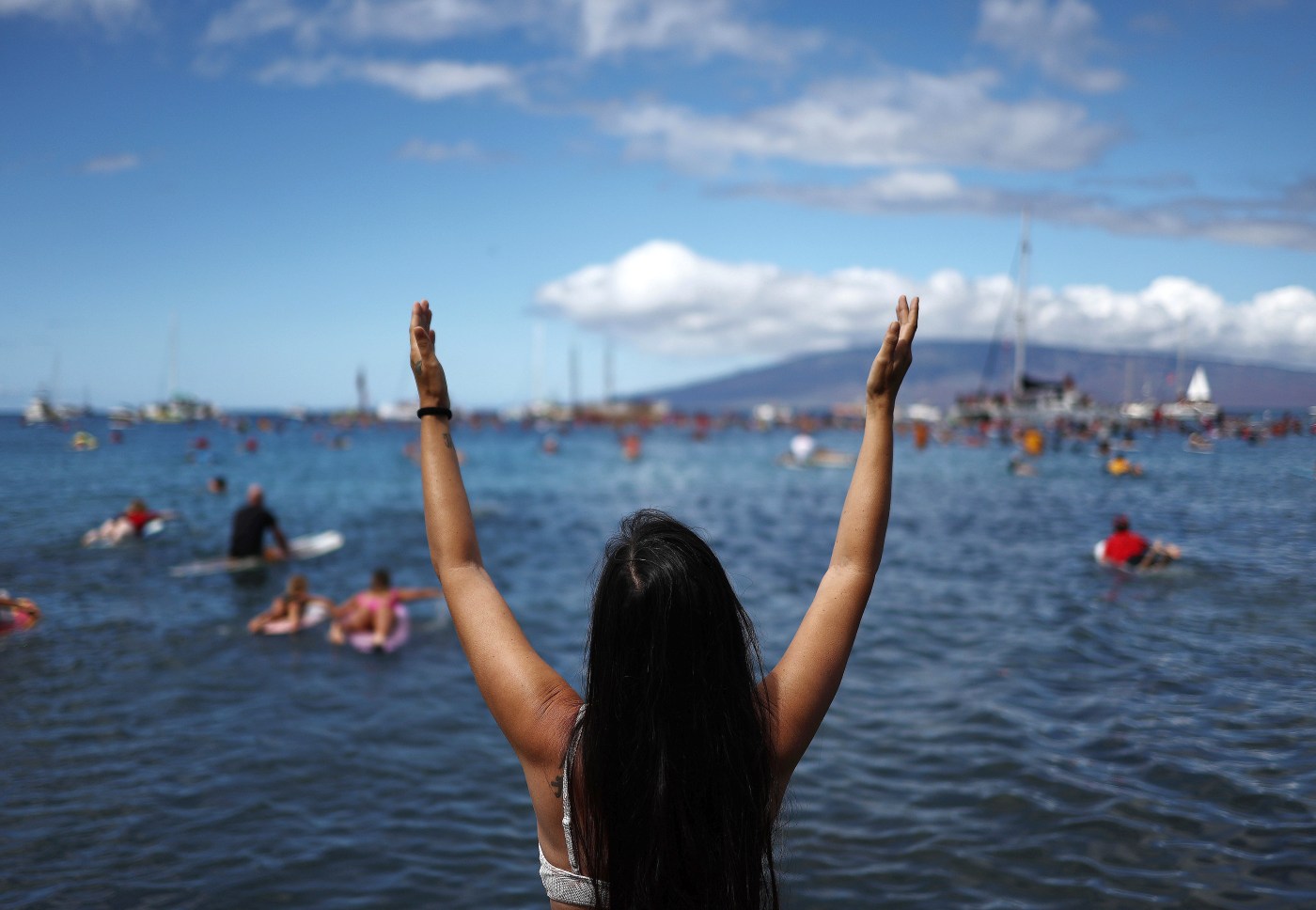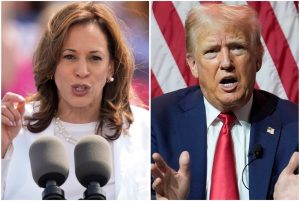
Massachusetts welfare dollars spent in Hawaii, Virgin Islands, Alaska: ‘What the hell is someone doing in Hawaii?’
Welfare recipients can’t use ATMs in casinos and pot shops, but that didn’t stop them from firing up EBT cards in Hawaii, the Virgin Islands, California, Florida, and Alaska.
That’s not all.
Data obtained by the Herald through a public records request shows taxpayer-paid “economic assistance” for Massachusetts residents cropped up from Alabama to Arizona, Pennsylvania to Puerto Rico, Utah to Wyoming and all the New England states.
It’s all part of the $3 billion — $3,050,090,786, to be exact — federal and state dollars given out in Fiscal Year 2024, which ended in July. Many worry that the migrant crisis will only exacerbate this staggering bill.
“This makes no sense. It’s insanity and government at its worst,” said state Sen. Ryan Fattman, a Sutton Republican. He stressed welfare is a godsend for those who fall on hard times, but trips to Hawaii?
“What the hell is someone doing in Hawaii? We need this money to help feed families,” he said. “This tells me there’s a major problem with this system.”
He’s convinced new arrivals grab welfare handouts here and then bolt. That’s why he’s filed a bill to require residency for a year for welfare recipients.
“We need to take care of the veterans, homeless kids, teachers, fire victims and those who suffered a medical setback first,” Fattman added, “not people who walk off a plane or a bus who come to Massachusetts and leave.”
The Department of Transitional Assistance data reveals that the single largest expenditure out of 32 in Hawaii was $378 in March of this year in Kahului on the island of Maui.
Another $351 was spent in Hilo, a region on the big island of Hawaii blessed with “dramatic waterfalls, fertile rainforests and blooming gardens,” in January. EBT money was also used in Honolulu, Pearl City, Princeville, Waikoloa, and Captain Cook according to the EBT data-entry list.
Princeville is known for “master-planned homes and condos on the north shore of the island of Kauai,” according to websites.
Captain Cook is a very similar spot and is famous for snorkeling and jungle hiking — giving visitors an “unspoiled Hawaii feeling,” one site states. The town is named after famed British explorer Captain James Cook, who was killed there.
As the Herald reported in 2019, EBT cards from Massachusetts were spent at 18 locations in Hawaii — including Princeville.
The DTA says its mission is to “empower low-income individuals and families to meet their basic needs, improve their quality of life, and achieve long-term economic self-sufficiency.” A spokesperson added that any “out-of-state usage beyond approved temporary absences can result in an individual no longer receiving assistance due to not meeting Massachusetts residency requirements.”
Yet, in FY24, 15 expenditures were recorded in the Virgin Islands for less than $25 to $116 in Christiansted, the port town of Saint Croix.
Another 17 entries in Alaska included $395 in Anchorage and $217 in Wasilla, Sarah Palin’s former hometown.
There are 165 cities and towns in California where EBT cards were used and 293 in Florida.
The data from FY24 shows Massachusetts welfare recipients travel to just about every state in the country. EBT withdrawals in foreign countries are forbidden, and no records were produced to show if anyone tried.
Using an EBT card is also blocked at liquor stores, pot shops, restaurants, porn sites, gun shops, and to pay court costs.
The use of welfare money outside New England, however, remains a massive drag on the budget, a Herald analysis shows.
“While it’s understandable that people travel to visit family, the magnitude of the travel raises the question as to whether all the people receiving benefits actually need the benefits,” said Mary Connaughton, Pioneer Institute’s director of government transparency.
Hawaii is 5,014 miles from Massachusetts; Alaska is 3,449 miles away.
The estimated 1 million welfare recipients in Massachusetts are helped with SNAP, formerly known as food stamps, and Transitional Aid to Families with Dependent Children (TAFDC) and Emergency Aid to the Elderly, Disabled and Children (EAEDC).
A June “Performance Scorecard” put out by DTA Commissioner Jeff McCue, paid $187,000-plus, said the agency serves 1 in 6 Massachusetts residents.
The Herald was told that this amounts to $2.4 billion in SNAP, $424 million in TAFDC, and $163 million in EAEDC last fiscal year. The money is put on an EBT card or deposited into bank accounts.
In the past three fiscal years (FY 2022, FY 2023, FY 2024), DTA has distributed more than $11 billion in food and economic assistance to qualifying Massachusetts residents: $1.5B in economic assistance and $9.7B in SNAP, the agency said.
Migrants and anyone in state shelters who are documented are eligible for these welfare programs — and more.
Resettlement agencies are helping migrant families apply for Homebase, a state-run program that provides emergency assistance of up to $30,000 over a two-year period for housing payments with the possibility of a third year of help.
A pilot program also draws $8 million in funding from a pot of $10 million already set aside for resettlement agencies to help up to 400 families find long-term housing by the end of this year.
The surge of arriving migrants overwhelming state-run shelters is set to cost taxpayers more than $1 billion during each of the next several fiscal years.
Welfare is not part of this calculation.
Coming tomorrow: The top cities and towns where welfare money was spent.
Related Articles
Massachusetts welfare by-the-numbers

